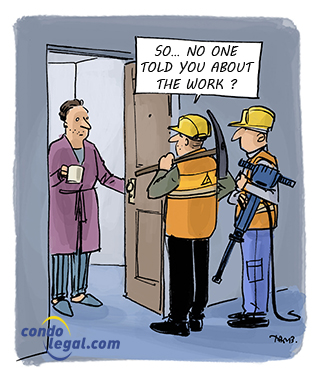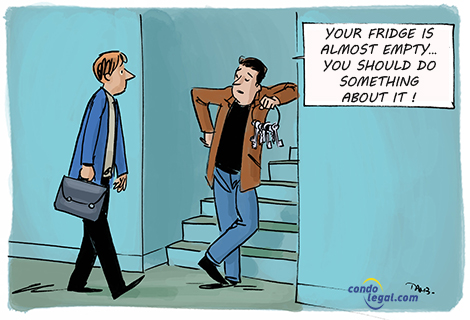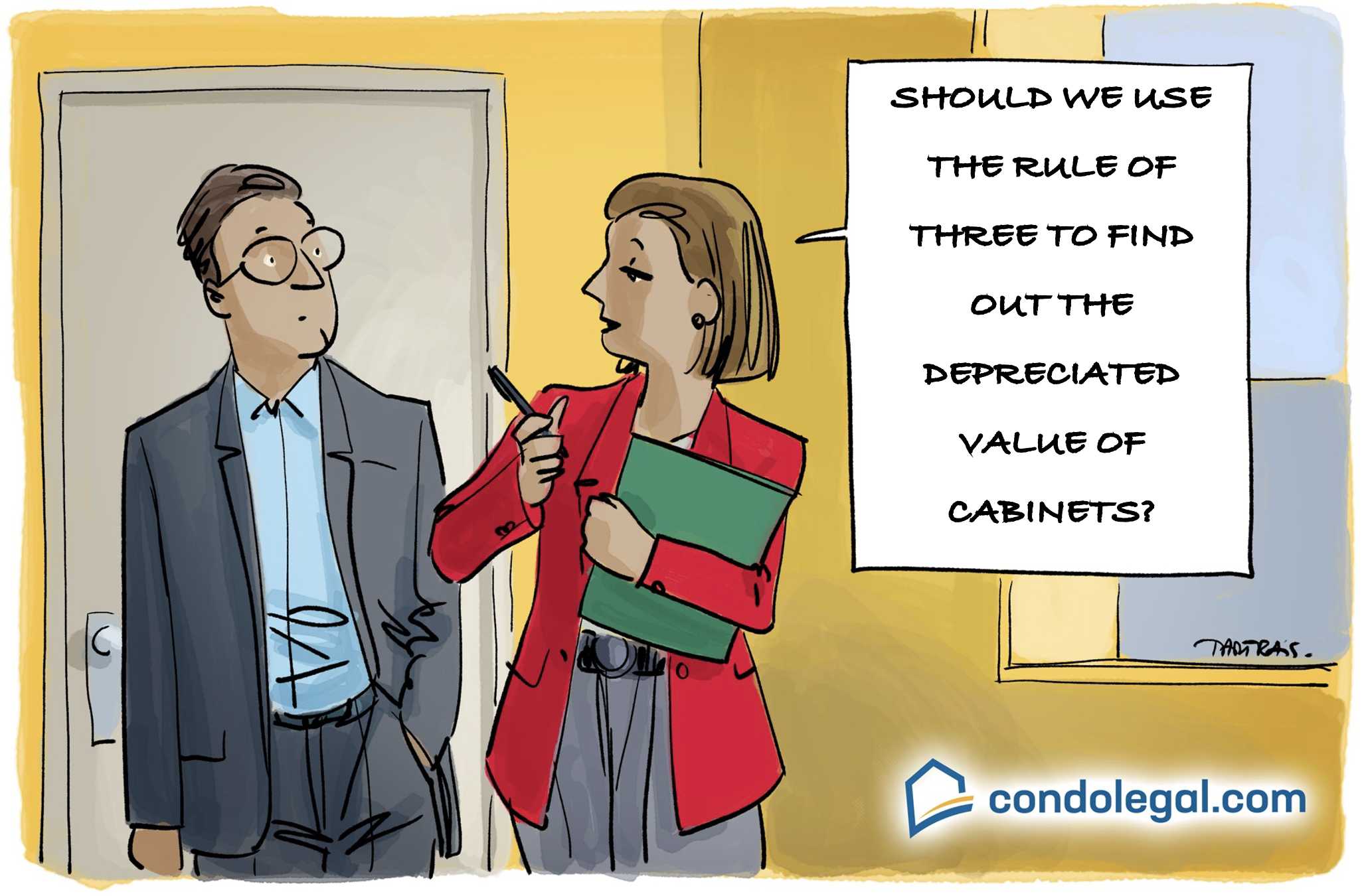Work following a water damage
 After a water damage, the ultimate goal of the syndicate and the co-owners is to find themselves in the same situation as they were before the occurrence of the loss. Due to its legal structure, the rehabilitation of common portions and private portions can be particularly complex in a divided co-ownership; this is why it should be taken care of by a general contractor who is qualified in the field. Situations vary from one claim to another depending on the parts of the immovable affected, the extent of the damages as well as the source of the water which may be clean or contaminated.
After a water damage, the ultimate goal of the syndicate and the co-owners is to find themselves in the same situation as they were before the occurrence of the loss. Due to its legal structure, the rehabilitation of common portions and private portions can be particularly complex in a divided co-ownership; this is why it should be taken care of by a general contractor who is qualified in the field. Situations vary from one claim to another depending on the parts of the immovable affected, the extent of the damages as well as the source of the water which may be clean or contaminated.
Emergency work
When the source of the water leak or flood is identified and all concerned people have been informed, the board of directors should consider emergency work; this type of work is carried out immediately to limit the damages and to avoid any worsening of the situation.
First of all, the syndicate will have to contact a plumber who will carry out an emergency intervention. Subsequently, after the syndicate's insurer has been notified, the latter will generally retain qualified contractors to carry out the precautionary work after the occurrence of a loss; in the event that the insurer is slow to come forward, the syndicate will have to act and contact a company that will intervene to put in place dewatering measures. Work to dewater the premises must be carried out without any delay; the objective is to prevent mold from growing and creating unsanitary problems. Finally, the premises should be ventilated as much as necessary to remove any traces of moisture; to achieve this, it is necessary to:
- evacuate stagnant water;
- cut and remove the water-soaked plasterboard;
- remove thermal insulation in contact with water;
- dry the sections affected by water with the installation of commercial high flow fans;
- use a professional dehumidifier with air filter to contain contaminants and possible mold.
Furthermore, it will also be required to identify the structures and the objects damaged by the water; photos must be taken before the start of the demolition work to document the inventory and to allow the filing of an adequate claim with the insurer of the co-ownership (condominium). Obviously, all the necessary supporting documents such as the invoices of the work undertaken must be kept to present them to the insurer.
Estimation of the damages
In principle, the syndicate's insurer will retain the services of a claims adjuster whose role is to estimate the extent and the amount of the damages resulting from the water damage as well as to determine whether the loss is admissible; the appointment of such a person by the insurer is not a given and it will depend on whether:
- the amount of the claim is greater than the amount of the deductible;
- the syndicate intends to claim or not compensation from its insurer.
In terms of rehabilitation work, insurers do business with their own commercial partners whom they select according to the quality of their services and their speed of action; they will see to agree on the terms of the contract according to the rates in place between them. Although the insurer can't impose on its insured a contractor to carry out the work, it is generally recommended to call on the contractor designated by him. it's important to note that in the event of damages done to the improvements made to a private portion, it is up to each affected co-owner to make the claim for compensation from his insurer and subsequently to obtain a repair quote.
Compensation
In the case of damage insurance, an insurer has the obligation to pay the indemnity to its insured within 60 days of receipt of the notice of loss or following receipt of the relevant information and vouchers requested by the insurer.
Rehabilitation work
Section 1039 of the Civil Code of Québec mentions that the syndicate's objectives are the preservation of the immovable as well as all operations of common interest; thus, it must make sure that the work necessary for the preservation and the maintenance of the immovable is carried out. Briefly, the legislature clearly wanted the syndicate to be responsible for the repairs resulting from a loss. Furthermore, if the syndicate decides not to claim compensation when the damage is relatively minimal, it becomes its own insurer and it will therefore have the obligation to see with diligence to the reparation of the damages caused to the property of the insured.
However, it should be noted that the insurer is entitled to reserve the right to repair, rebuild or replace the insured property as specified in section section 2494 of the Civil Code of Québec; if this is the case, the insurer is required to guarantee the quality of the work when it chooses to assume the repair itself. But, there is an exception to the ability to proceed with the necessary reparations, that is to say when an insurance trustee is appointed following a substantial loss; thus, the appointment of a trustee defeats the insurer's right to have the work carried out.
 WHAT YOU SHOULD KNOW! The administrative management of a loss could be done by a condo manager.
WHAT YOU SHOULD KNOW! The administrative management of a loss could be done by a condo manager.
 WHAT TO KEEP IN MIND: When it comes to rehabilitation work, it is recommended to do business with contractors having agreements with insurers.
WHAT TO KEEP IN MIND: When it comes to rehabilitation work, it is recommended to do business with contractors having agreements with insurers.
 WARNING! The costs of repairing a damaged object are limited to its replacement value and so, without the victim suffering an impoverishment or making a profit.
WARNING! The costs of repairing a damaged object are limited to its replacement value and so, without the victim suffering an impoverishment or making a profit.
Back to the factsheet: Water damages





